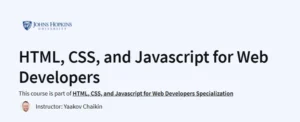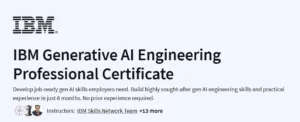What will you learn in this Divide and Conquer, Sorting and Searching, and Randomized Algorithms Course
Analyze algorithm efficiency using Big-O notation and recursion.
Build efficient algorithms using divide and conquer techniques like merge sort and matrix multiplication.
Implement randomized algorithms including QuickSort and graph contraction.
Solve problems involving sorting, searching, and selection in linear or near-linear time.
Apply algorithmic thinking to mathematical and real-world computing challenges.
Program Overview
1. Introduction and Asymptotic Analysis
⏳ 1 week
Learn fundamentals of algorithm analysis and growth rates.
Implement integer multiplication algorithms (e.g., Karatsuba).
Study merge sort and its recursive structure.
2. Divide and Conquer Algorithms
⏳ 1 week
Count array inversions using divide and conquer.
Implement Strassen’s matrix multiplication.
Solve geometric problems like closest pair using recursion.
Master the “master method” for recurrence relations.
3. Randomized Algorithms and QuickSort
⏳ 1 week
Dive into randomized QuickSort and its performance.
Understand probability fundamentals in algorithm design.
Analyze worst-case vs. expected performance.
4. Linear-Time Selection and Graph Algorithms
⏳ 1 week
Design linear-time algorithms for finding order statistics.
Use randomized algorithms for graph problems (e.g., min-cut).
Reinforce understanding with graph contraction algorithms.
Get certificate
Job Outlook
High demand in tech roles such as Software Engineer, Algorithm Engineer, and Competitive Programmer.
Mastery of algorithmic principles boosts success in coding interviews.
Applicable in systems design, data science, and research roles requiring optimization.
Prepares learners for advanced study in computer science and algorithmic research.
Specification: Divide and Conquer, Sorting and Searching, and Randomized Algorithms Course
|
FAQs
- Basic programming knowledge in any language is recommended.
- Familiarity with fundamental data structures (arrays, lists, trees) is helpful.
- Prior algorithms knowledge is not mandatory; the course introduces concepts gradually.
- Suitable for computer science students and aspiring software engineers.
- Focuses on practical applications of divide-and-conquer strategies.
- Divide-and-conquer approach and its applications.
- Sorting algorithms: Merge Sort, Quick Sort, and Heap Sort.
- Searching algorithms including binary search and randomized search techniques.
- Randomized algorithms and probabilistic analysis.
- Time complexity, efficiency, and performance optimization.
- Includes coding exercises for each algorithm discussed.
- Projects cover sorting, searching, and divide-and-conquer applications.
- Encourages writing and analyzing algorithm performance.
- Step-by-step examples reinforce theoretical concepts.
- Provides practice with real-world problem-solving scenarios.
- Teaches systematic approaches to break complex problems into smaller subproblems.
- Enhances understanding of efficient algorithm design.
- Improves ability to analyze and optimize code performance.
- Builds logical thinking and computational reasoning skills.
- Prepares learners for competitive programming and coding interviews.
- Useful for software engineering, backend, and system design roles.
- Supports coding interview preparation at tech companies.
- Helps in designing efficient data processing and search solutions.
- Applicable in AI, ML, and large-scale software systems.
- Strengthens foundation for advanced algorithm and data structure courses.





